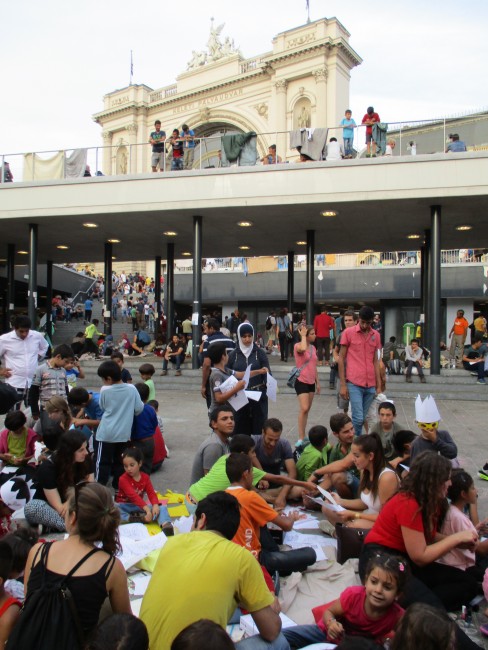The workshop “Geographies of Markets”—hosted over three days in mid-June 2017 by the Karl Polanyi Institute of Political Economy at Concordia University, Montréal—gave scholars from a wide range of countries and disciplines an opportunity to assess the continued relevance of the Polanyian critique of “market society.” Even if this critique lacks the formal rigor of neoclassical economics, even if Polanyi’s concept of market exchange fails to capture the institutional intricacies of contemporary markets, and even if the man himself was very much a European intellectual of his age, his approach still appears to provide the best scientific foundation on which to build global political and normative alternatives to neoliberal hegemony. Today, however, his geographic binary between East and West, like his ideal types of redistribution and market exchange, all need careful reappraisal.
Tag Archives: Chris Hann
Chris Hann: Beleaguered pseudo-continent: Happy birthday, Europe!
This post is part of a feature on anthropologists on the EU at 60, moderated and edited by Don Kalb (Central European University and University of Bergen).
Sixty this month, the European Union is almost as old as I am. Should we, in March 2017, celebrate a beacon of liberal-democratic sanity between the populists of Washington and London to the West and those of Ankara and Moscow to the East? Or is it time to pension off the construction launched with the Treaty of Rome in 1957, since it has come to violate basic desiderata of economic efficiency and equity, as well as democratic legitimacy?
Chris Hann: The new Völkerwanderungen: Hungary and Germany, Europe and Eurasia
I spent the last weeks of August and the first days of September in Hungary, close to the European Union’s border with Serbia. Never before had a routine field trip catapulted me into an engagement with issues dominating daily headlines, both in Hungary and elsewhere. What light can social anthropology throw on the current “migrant crisis”?
Continue reading
Chris Hann: The Expansion of NATO and the Contraction of Eurasia
The North Atlantic Treaty Organization (NATO) summit in South Wales held 4–5 September 2014 was heavily mediatized in member countries as a “wake-up call” for this military alliance, for Europe, and even for Western civilization. Violence in eastern Ukraine, for which Vladimir Putin alone was allegedly responsible, was said to be catapulting the world back to the polarization of the Cold War. Yet when one looked more closely, Putin’s propaganda was restrained in comparison with the inflammatory rhetoric of the retiring NATO secretary general and the hyperbole of the US State Department and numerous European politicians with only one thing in common: They knew little or nothing about the history of Ukraine.
